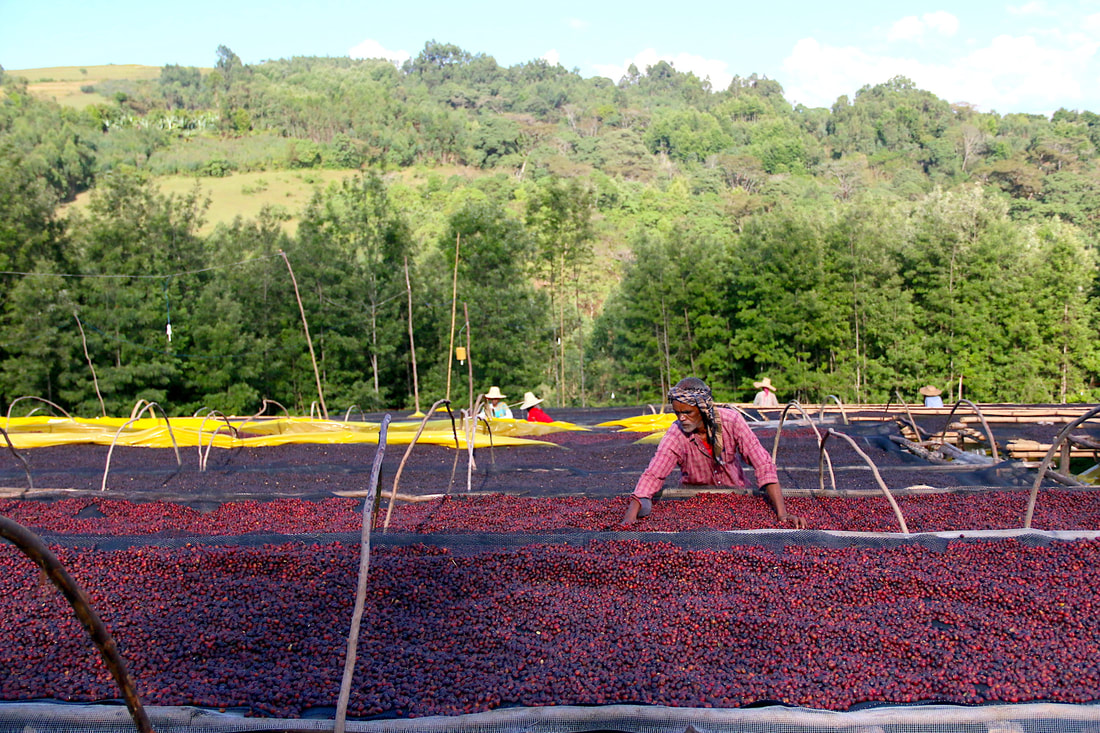It would be ideal if the coffees were floated in water when they reach the washing/drying station, but this is also not done due to the large volume of cherries that are received in a very short period of time. Sorting has to be done by hand, with the difficulty that the human eye is not able to pick up subtle differences in the colour or texture of the cherry, thus incurring the possibility of finding defects in the cup and quakers. But as all processes are perfectible, we must provide the necessary feedback to producers so that they can implement feasible solutions to produce more and better coffees year after year.
Prefer conscious sustainable coffee production and enjoy your Ethiopian naturals!



 RSS Feed
RSS Feed